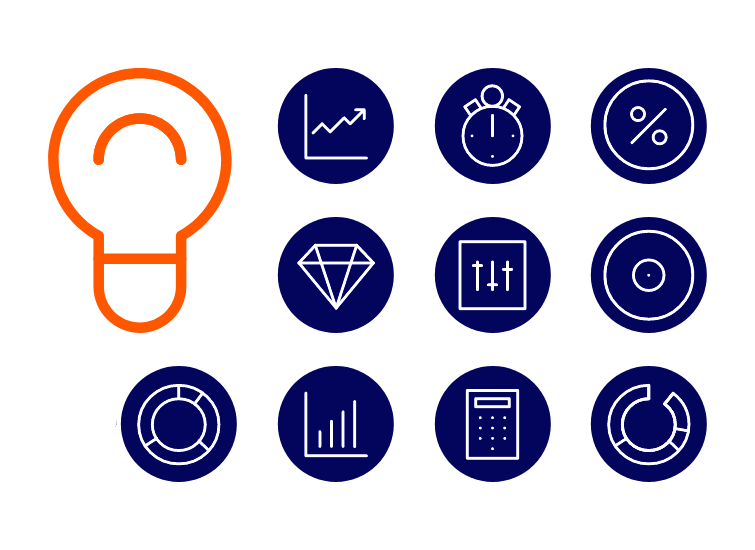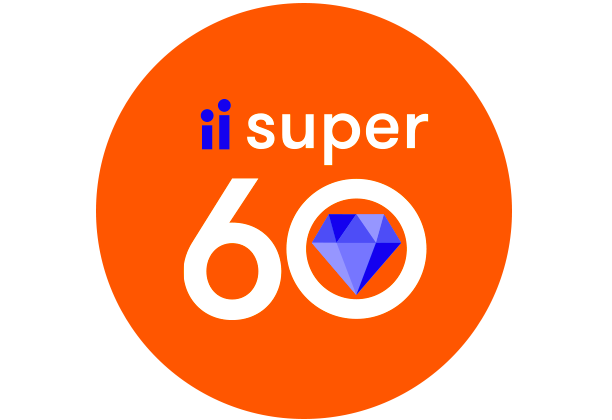Equity funds
Learn how equity funds work, and how to invest in equity funds with ii.

Please remember, investment value can go up or down and you could get back less than you invest. The value of international investments may be affected by currency fluctuations which might reduce their value in sterling.
What are equity funds?
An equity fund is a type of fund, investment trust or exchange-traded fund (ETF) that is invested in equities – more commonly known as shares.
Investing in a small number of equities can be risky, since you are relying on fewer companies doing well to grow your portfolio. However, by investing in multiple equities through funds, you can spread that risk and balance your investment portfolio.

How do equity funds work?
If you choose to invest in an equity fund, your money will be invested across a wide range of companies. This diversification reduces the risk of a few underperforming companies negatively impacting your overall portfolio.
A big advantage of investing in equity funds is their relative simplicity. You simply need to choose the fund and the fund manager does the hard work of picking the companies they think will outperform the stock market.
Types of equity funds
Equity funds either focus on particular markets (e.g. the US), a particular size of company, or specialise in a sector - such as technology or infrastructure.
These are the three broad types of equity funds you can invest in:
- Market capitalisation funds: these equity funds focus on a particular company size. They can include anything from ‘mega-cap equity funds’ that invest in companies worth more than $200 billion such as Apple or Microsoft, right down to ‘micro-cap equity funds’ which invest in companies worth less than $300 million.
- Geographical funds: these equity funds focus investments on either global stocks or stocks from a particular region. For example, you could invest in global equity funds, US equity funds or an Asian equity fund.
- Investing style funds: these equity funds focus on the fund manager’s strategy or methodology. There could be a focus on growth – where money is invested only in companies expected to grow faster than the market; on income – where money is invested in companies that pay significant dividends; and on value – where money is invested in 'cheap' companies that are deemed undervalued by the market.
What equity funds do ii offer?
If you have a particular equity fund in mind, there's a good chance we offer it here at ii. You can search for the fund you're looking for on our funds page.
Not sure where to start? Here are just a few of the equity funds on our Super 60 investment list:
- Scottish Mortgage - this investment trust has seen very strong performance in recent years (though this is not guaranteed to continue).
- Fundsmith Equity - managed by respected investor Terry Smith, with around 66% invested in the US market.
- iShares Core MSCI World ETF - tracks the MSCI World index, comprised mainly of large companies from 23 developed markets.
Please note: our Super 60 investments are not personal recommendations. Please do your research and if you are unsure, seek advice from a suitably qualified financial adviser.

How to invest in equity funds with ii
2.
Choose your fund(s)
Need inspiration? We've included several equity funds in our Super 60 investment list.
3.
Choose how you want to invest
We've made it simple:
- Top up monthly with our regular investing service and pay no trading fees.
- Or buy & sell investments as and when you choose. Your first trade each month is free.
Important information
The price and value of investments and their income fluctuates, so you may get back less than the amount you invested. If you are unsure about the suitability of a particular investment or think that you need a personal recommendation, you should speak to a suitably qualified financial adviser.
The information we provide in the ii Super 60 is an opinion provided by ii or one of its partners on whether to buy a specific investment. Please note that none of the opinions we provide is a personal recommendation.
Remember that each fund is unique and exposed to different levels of risk. While some are relatively low risk, others can be very risky and will only be appropriate for more sophisticated investors.
There may be a fund manager charge, which is a percentage of the value of your investment. This can differ depending on the fund.
We charge a monthly flat fee to cover the cost of our services, including the administration of your funds.